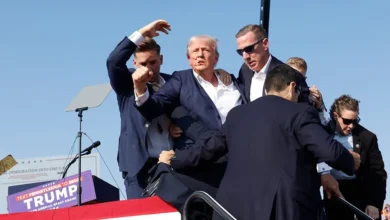Election Contest News: The Latest Developments and Candidates’ Strategies

As election season heats up, news outlets, political analysts, and voters are closely following the latest developments in the race. Election contests, whether at the local, state, or national level, bring forward intense battles between candidates who seek to earn the trust of the electorate. With so much at stake, each move made by candidates, political parties, and their supporters is highly scrutinized, making the contest itself a subject of constant media attention. In this article, we will explore the latest election contest news, the evolving strategies employed by candidates, and the crucial factors shaping the outcome of this year’s most important races.
The Current State of Election Contests
The political landscape is ever-changing, and with each new election contest, the dynamics shift in unpredictable ways. In the lead-up to the next election cycle, several critical races are capturing public attention. These races involve top-tier candidates from both major political parties, third-party challengers, and independent contenders who are all vying for crucial positions in government. Whether it’s a presidential, gubernatorial, congressional, or mayoral race, election contests bring to light the contrasting ideas and platforms presented by each candidate.
In national contests, like presidential elections, the stakes are extremely high, and as such, these races often become intensely competitive. Media outlets covering election contest news are tasked with offering up-to-the-minute coverage on everything from polling results to campaign events, political endorsements, and public debates. For voters, staying informed about these developments is key to making well-considered choices when it comes time to vote.
For local and state races, election contest news is equally important, as these contests often determine who will be in charge of education, healthcare, public safety, and infrastructure at the local level. Political analysts closely examine candidate performances in these races, and both major political parties make strategic decisions about where to invest time, energy, and money to influence the outcome.
Key Developments in Election Contests
1. Shifting Voter Sentiment
Voter sentiment plays a critical role in shaping election contest news. Polling data, which tracks public opinion, can shift rapidly as candidates and political parties introduce new policies or make headlines for controversial statements. These shifts in public opinion often influence campaign strategies, with candidates adjusting their messaging to either capitalize on newfound popularity or mitigate a dip in support.
For example, in the current election cycle, certain issues like healthcare, climate change, and economic inequality are resonating more with voters than in previous years. This has prompted candidates to pivot their messaging, focusing heavily on policies related to these topics in order to gain traction among key demographics.
Voter sentiment can also be swayed by external events, such as economic crises, national disasters, or global geopolitical tensions. In such cases, candidates must react quickly to position themselves as strong leaders capable of addressing these challenges. As these events unfold, they drive the evolution of election contest news, as reporters provide ongoing analysis of how candidates are responding.
2. The Influence of Social Media
In the modern political landscape, social media plays an increasingly influential role in election contests. Platforms like Twitter, Facebook, Instagram, and TikTok are often used by candidates to communicate directly with voters. These platforms allow candidates to bypass traditional media and speak to their audience in real-time, offering more personalized updates on campaign events, policy stances, and personal anecdotes.
However, social media also presents challenges, as misinformation and “fake news” can spread rapidly across these platforms, affecting public perception. Candidates must manage their online presence carefully, employing digital teams to counteract false narratives or engage in direct messaging campaigns.
The rise of social media influencers has also introduced new dynamics in the election contest news cycle. Influencers with large followings can amplify messages, endorse candidates, or mobilize young voters in unprecedented ways. This digital landscape has transformed how political campaigns are run and how news is disseminated to the electorate.
3. Key Endorsements and Surprising Alliances
In many high-stakes election contests, candidate endorsements can have a significant impact on the race. When high-profile political figures, celebrities, or influential community leaders publicly endorse a candidate, it can sway undecided voters and solidify a candidate’s reputation. These endorsements are often heavily covered in the election contest news, with political pundits offering analysis of how such endorsements will impact voter behavior.
In some cases, surprising political alliances emerge, where candidates from different parties join forces to secure a particular position or advance shared interests. These alliances may be motivated by mutual benefits, strategic calculations, or the desire to appeal to a broader base of voters. Election contest news often highlights these unexpected shifts, as they can dramatically alter the course of a race.
For instance, a progressive Democrat may form an alliance with a moderate Republican to champion certain policy reforms, or a prominent independent candidate might gain the backing of key political figures from both major parties. These unexpected alliances can also create complex narratives within election contest news, as they challenge the traditional partisan lines and introduce new dynamics into the race.
4. Campaign Financing and Spending
Campaign finance plays a major role in election contests. Candidates rely heavily on donations from individual supporters, Political Action Committees (PACs), and other interest groups to fund their campaigns. These funds are then used for advertising, organizing events, and mobilizing volunteers to support the candidate’s efforts.
In the modern political landscape, the cost of running a successful campaign has skyrocketed, and fundraising has become a critical part of the race. The influx of spending, especially in battleground states, is often covered extensively in election contest news. Reporters analyze the sources of campaign contributions, including corporate donations, PAC involvement, and small-dollar donations from grassroots supporters.
For voters, it’s essential to understand how campaign financing influences a candidate’s priorities. For example, candidates who receive large donations from specific industries may be more inclined to support policies favorable to those industries. This financial aspect of the election contest is often scrutinized, as transparency and accountability become central issues in the news cycle.
5. Debates and Public Engagements
Public debates are one of the most anticipated events in any election contest. These forums allow candidates to directly address one another’s policy proposals, challenge their opponents, and connect with voters in a public setting. For many voters, debates are a pivotal moment that helps them decide which candidate best aligns with their values and vision for the future.
Election contest news covers these debates closely, offering real-time analysis of the candidates’ performances. Did a candidate deliver a strong rebuttal? Did another miss an opportunity to address a pressing issue? Such moments are often replayed and analyzed from multiple angles by political commentators and pundits, shaping the narrative of the race.
Candidates often use debates to shore up their weaknesses or capitalize on their opponent’s mistakes. As such, debates become high-stakes events where every word counts. The ability to stay composed under pressure and effectively communicate complex policy proposals can often make or break a candidate’s standing in the race.
Candidates’ Strategies in election contest news Contests
The strategies employed by candidates in election contests are shaped by numerous factors, including voter demographics, campaign financing, national and local issues, and the broader political environment. Understanding these strategies provides insight into how candidates are positioning themselves for success.
1. Voter Mobilization and Ground Game
One of the most important strategies for any candidate is to build a strong ground game, which involves organizing volunteers and reaching out to voters at the local level. This includes knocking on doors, hosting town halls, and organizing rallies and events to drum up support. The more direct contact a candidate has with potential voters, the higher the likelihood that they will turn out on election day.
Candidates in competitive races often invest significant time and resources into voter mobilization efforts, particularly in swing states or districts. The goal is not just to persuade voters to support the candidate, but to ensure that supporters show up to vote on election day.
2. Message Framing and Policy Proposals
Candidates craft their messages based on the issues that resonate most with the electorate. For example, a candidate running in a district with high unemployment may focus on job creation and economic recovery, while one in a region heavily impacted by climate change may emphasize environmental policy. Candidates also position themselves in response to their opponents’ messages, trying to frame the debate on their terms.
A strong, clear policy agenda can set a candidate apart from their opponents and establish them as a leader in a specific area. For instance, a candidate who presents a detailed plan for healthcare reform may appeal to voters concerned about access to medical services, while a candidate who champions tax cuts for businesses may attract more conservative voters.
3. Digital Campaigns and Data Analytics
In today’s world, digital campaigns are an essential component of any successful election contest strategy. Data analytics allow campaigns to target specific groups of voters with personalized messaging through social media platforms, emails, and even text messages. By analyzing voter data, campaigns can craft more effective advertising, tailor their messaging, and ensure they are reaching the right audience at the right time.
Digital platforms also allow candidates to fundraise more efficiently and engage with supporters in real-time. Social media allows campaigns to react quickly to breaking news, share highlights from speeches or debates, and engage directly with voters through comments and live streams.
FAQs
1. What are the most important factors in an election contest news? The most important factors in an election contest include voter sentiment, campaign strategies, public debates, key endorsements, voter mobilization, and the candidates’ ability to communicate their policy proposals effectively.
2. How do social media platforms affect election contests? Social media platforms are crucial in modern election contests, allowing candidates to engage directly with voters, share their messages, and mobilize support. However, they can also spread misinformation, which candidates must manage carefully to protect their image.
3. What role does campaign finance play in an election contest? Campaign finance plays a critical role in election contests, as candidates rely on donations from individuals, PACs, and other organizations to fund their campaigns. The amount of money a candidate can raise often determines their ability to advertise, organize events, and mobilize voters.
4. How do candidates tailor their messages during an election contest? Candidates tailor their messages based on the issues that are most important to the voters in a particular region or district. This includes adjusting their policy proposals to address local concerns and responding to opponents’ positions in a way that highlights their own strengths.
5. What is the significance of debates in an election contest news? Debates are key moments in an election contest news where candidates can present their policy proposals, challenge their opponents, and connect with voters. Strong performances in debates can boost a candidate’s popularity, while poor performances may hurt their chances.
You May Also Read: https://usasmartnews.com





